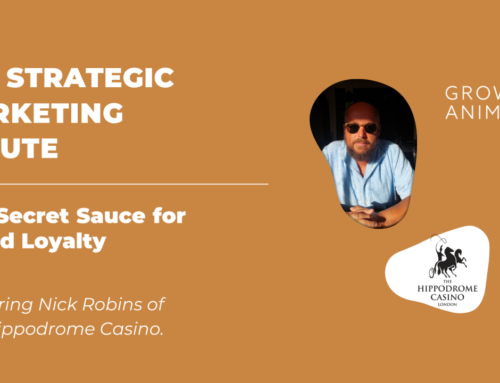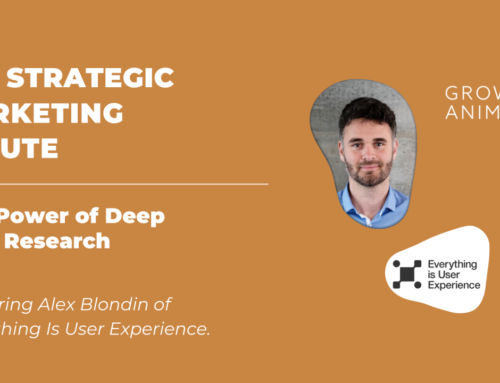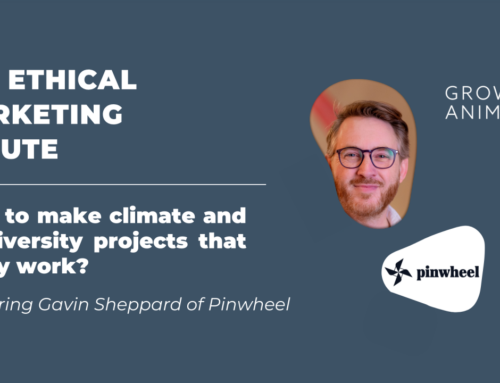7 old school lessons for minimising stress at work
1 min read

Over the years, so much has been written and discussed regarding ways to ease stress, particularly at work, and more so recently about the challenges of working from home due to the current pandemic. Trends come and go, ideas become popular then someone else has another point of view which becomes the go-to, but I have the less popular opinion of old school principles.
As self-appointed Chief Wellbeing Officer at Growth Animals, when it comes to work-related stress, I believe prevention is better than cure. Easier said than done I know, as often pressured situations creep up on us unconsciously, when boundaries and conscious thought and all the best of intentions go out the window. However, if at all possible, we should take responsibility for ourselves and each other, learning to step back, assess and evaluate situations and workloads before burn-out is reached, or personal lives are affected, especially now that work and life isn’t so much balanced, but blurred.

Now, I’m bordering on woke when it comes to self-care, mental health, and wellbeing. I can be found doing yoga (regularly) and opening my Headspace meditation app (occasionally), I take probiotics and read self-development books, however, I am proudly old-fashioned when it comes to principles and ideas to keep on top of workload and manage pressure and stress successfully.
This may be because, during my time working in brand management at the fragrance distributor Kenneth Green Associates, we were all lucky enough to be put through the late Stephen R Covey’s 7 Habits of Highly Successful People course. This would have been a big investment into the employees of the company, but paid back in droves, as it was extremely powerful and effective in boosting morale, giving colleagues a shared understanding and language, becoming more efficient, and reducing stress. I feel privileged to have been part of the course, as I use some of my favourite principles or ‘habits’ still, all these years on both in my personal and work life (which lets face it blurs somewhat now more and more of us work from home and juggle other commitments).
The 7 habits of highly successful people
Be proactive – focus on influencing what you can influence
Begin with the end in mind – first ask, where do I want to get to?
Put first things first – identify and start with the important things
Think win-win – compromise, negotiation and balance
Seek first to understand, then to be understood – listen, understand and then communicate
Synergize – team work and creative collaboration
Sharpen the saw – keeping your tools sharp to be most efficient
Not every ‘habit’ was for me. I felt it got a bit preachy and righteous at times, but these are the ‘habits’ that I personally think apply as much today as when Stephen Covey wrote his book in 1989. And these are my favourites.

Sharpen the saw
A woodcutter is no good if they don’t stop to sharpen their tool. Who wants a blunt saw whilst working?! It is so true, working beyond work hours isn’t big or clever or an indicator of how hard-working or dedicated you are to your work, it is irresponsible and unsustainable in the long run. It is far more intelligent and productive to have boundaries in order to have time out of work mode to refresh, reset, and quite frankly, have a lovely time with your friends and family.
At Growth Animals, we don’t have set work hours or a cap on holiday, as we trust each other to put our all into helping our clients, whilst taking good care of ourselves and our families. And we will call each other out on not switching off.
Put first things first
Call me old fashioned, but a to-do list, neatly organised into categories of importance brings me joy and focus. Especially if that list clearly shows which jobs are neither urgent nor important therefore actually don’t need to be done! Basically, Stephen Covey had us folding a piece of paper into four quadrants and heading them up ‘urgent and important’, ‘urgent not important’, ‘important not urgent’, and ‘neither urgent nor important’. Genius.
As Covey’s website states: “To live a more balanced existence, you have to recognise that not doing everything that comes along is okay” and I couldn’t agree more. This ‘habit’ ties in nicely with ‘Be Proactive’ which is outlined below, as ‘put first things first’ is also about choice, and not being dictated to by outside forces and others agendas. You are proactively in control of your to-do list.
Begin with the end in mind
As Sun Tzu wisely said, “strategy without tactics is the slowest route to victory. Tactics without strategy is the noise before defeat.” and how overwhelming is it to not have a clear plan of how you get from here to the end goal?! For me, it doesn’t bear thinking about. Winging it may be for some, but it doesn’t make it calm or efficient for me. So like Stephen Covey says, beginning with the end in mind, sets out a strategy to get to that ‘end’ and whether that is our personal goals or our work projects, the same applies. Plus, our brains are wired in a way that cannot distinguish between things we want and things we have, thus driving us towards accomplishment. So I say, beginning with the end in mind is a very good shout.
Be proactive
It’s much easier in the moment to believe we can’t adapt to situations, and to say “this is just the way I am” and “there’s nothing I can do”, but Stephen Covey truly believed that your life doesn’t just happen, and whether we are conscious of the fact or not, that our life is a series of choices, made by ourselves.
Coincidentally, I have recently read The Source, by Dr Tara Swart, a neuroscientist who makes a really strong case that most of the things we want in our lives are governed by our brain and that one can rewire our brain’s pathways to fulfil our potential. Bold statement I know, and hard to explain or back up with evidence in the word count I have been given, but it supports Covey’s advice that ‘Be Proactive’ is about taking responsibility for your life, rather than being ‘reactive’ and blaming external factors.
Proactive people focus their time and energy on things they can control, which in relation to stress and challenging situations, are the things that are within our ‘circle of influence’, like our choice of language, our actions, our steps we are taking to impact wider issues, rather than our ‘circle of concern’, those worries that we have no direct influence on, which in turn creates more stress. Covey even gets his participants to draw two circles, one inside the other, and list ‘worries’ inside the inner circle, the circle of influence, and those that can’t be influenced directly in the outer circle, the circle of concern.
Concerns can still be concerns, but energy is focused on those challenges that we can directly impact.

In summary
So in summary, Stephen Covey was a very clever chap, and I believe that the ideas he shared in his 7 Habits of Highly Successful People work don’t just still apply today, they are even more imperative today, in order to deal with the multiple and often overwhelming pressures and stresses we face in our daily lives, at work, at home, through our multiple touchpoints with others, the list goes on.
Not all of Covey’s habits will resonate with everyone, but there is a really good spectrum of principles to choose from that all aim to help one to become more successful in a more effective, smoother, calmer way, measured by one’s own gauge of what success means to each individual. The most important measure of success.



